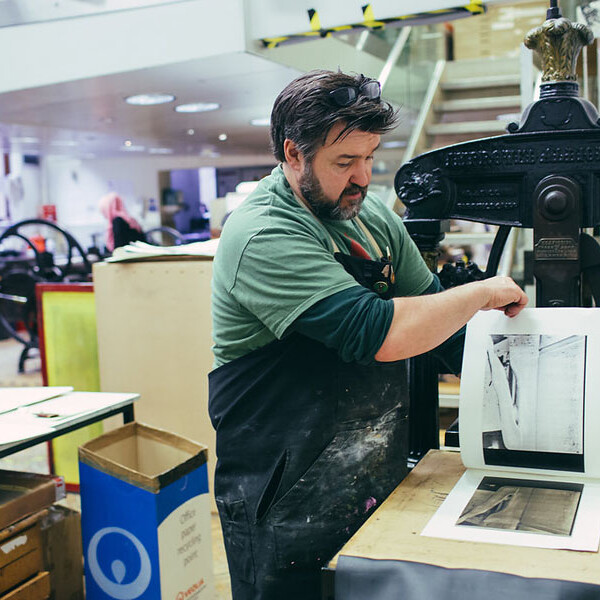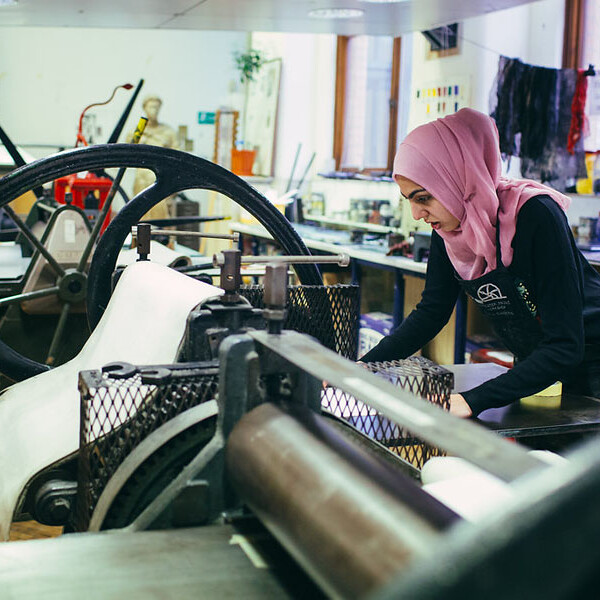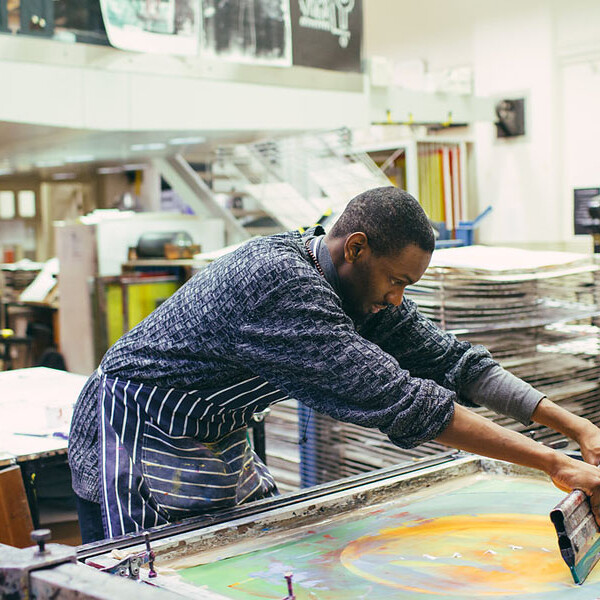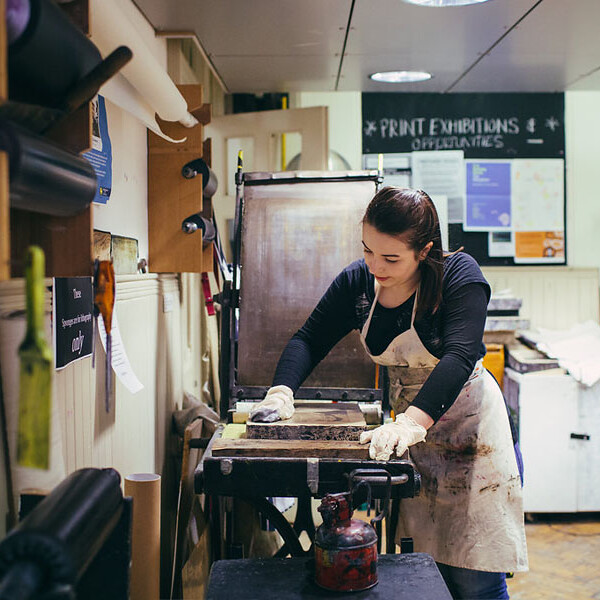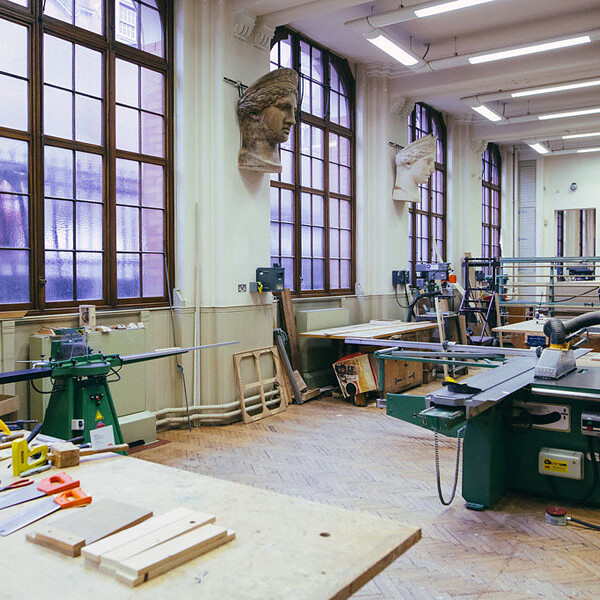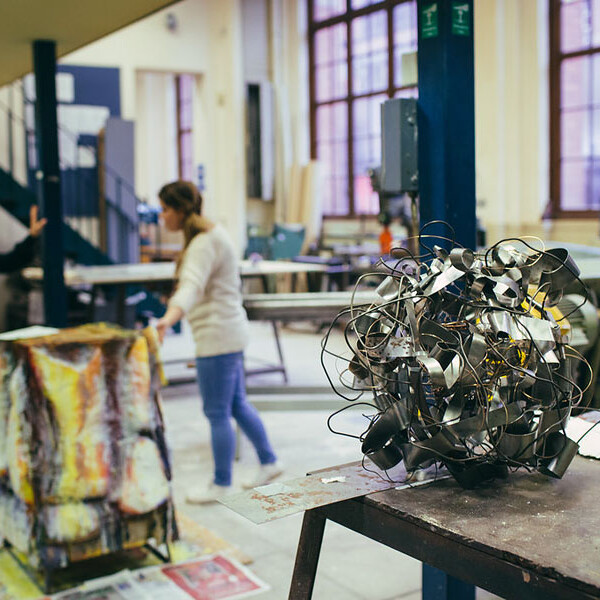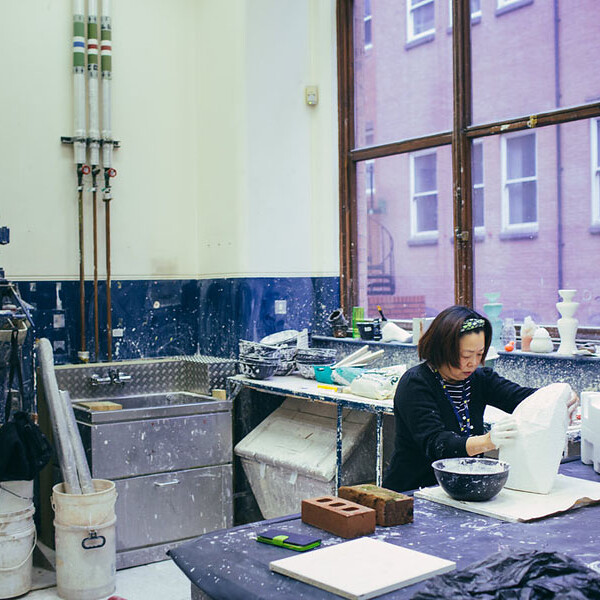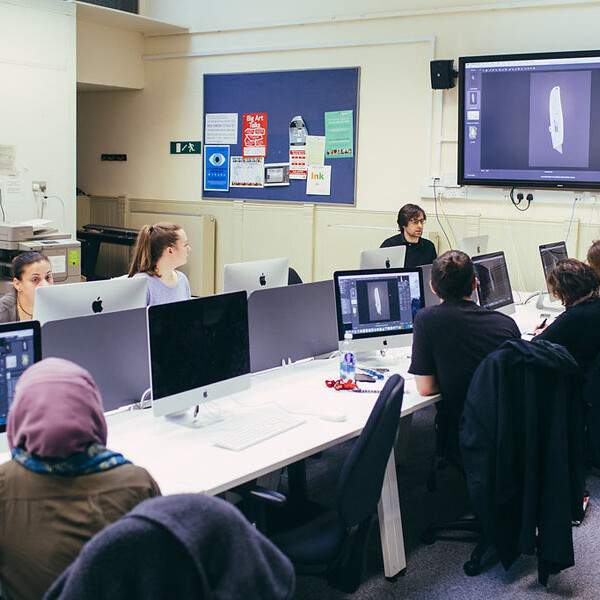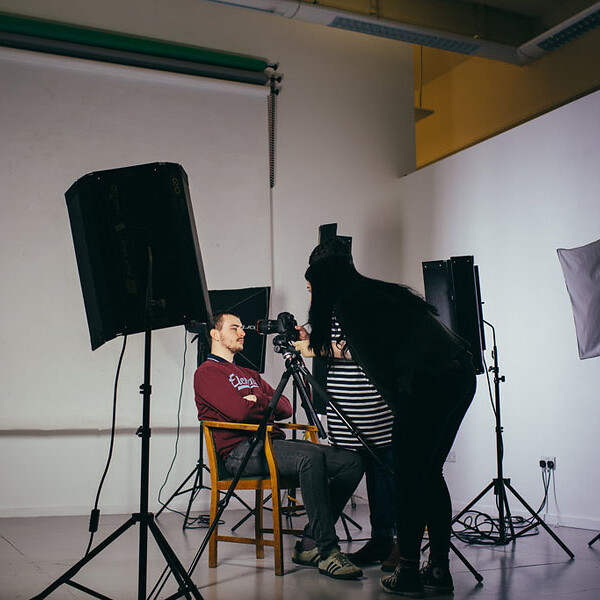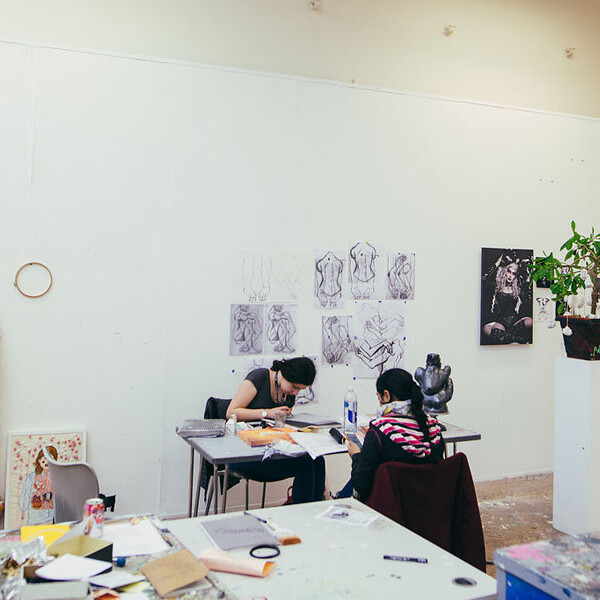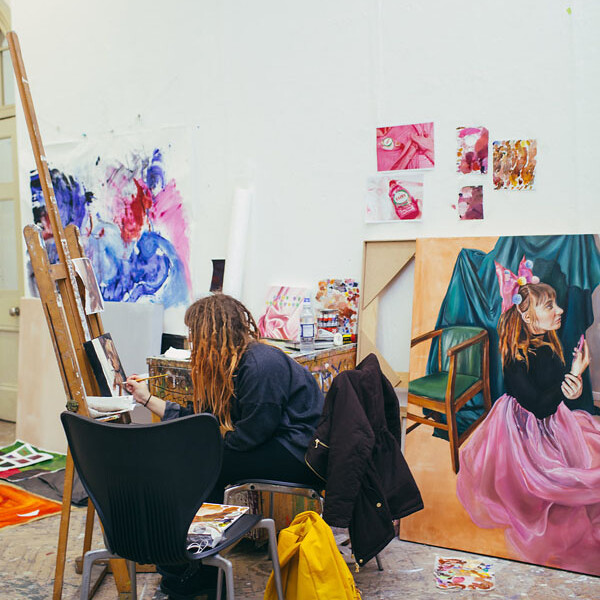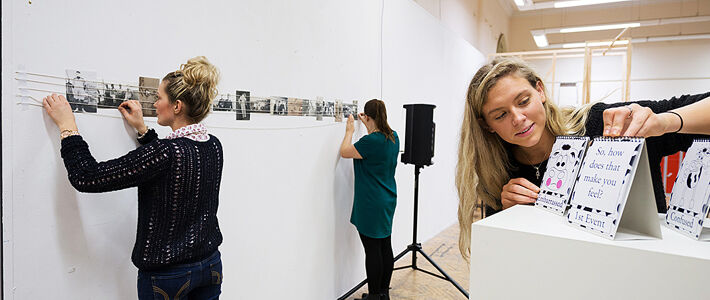
Arts and Project Management - MA
Currently viewing course to start in 2025/26 Entry.
On the MA Arts and Project Management course you will learn how arts organisations, cultural spaces, festivals, and visual and performing arts projects are produced and managed. The course is designed for those who wish to pursue a career in arts management to gain expertise in the requirements for managing, delivering and marketing engaging arts projects, cultural experiences and events....
- Level Postgraduate Taught
- Study mode Full Time/Part Time
- Award MA
- Start date September 2025
- Fees View course fees
- Subject
- Location Margaret Street
This course is:
Open to International Students
Overview
Financial awards are available for this course. Find out more and apply now
On the MA Arts and Project Management course you will learn how arts organisations, cultural spaces, festivals, and visual and performing arts projects are produced and managed. The course is designed for those who wish to pursue a career in arts management to gain expertise in the requirements for managing, delivering and marketing engaging arts projects, cultural experiences and events.
This course will enable you to develop professional and practical experience, gaining advanced organisational, planning and marketing skills. Whether you see yourself as an artist, designer-maker, actor, musician, illustrator, artist, writer, filmmaker or a blend of any number of these roles, this course will equip you with the tools to articulate and bring your ideas to life.
The course enables you to generate and develop innovative ideas within arts and culture and provides the know-how and skills to make these a reality. During the year you will produce detailed project, event and marketing plans to scope, plan, communicate dynamic creative projects that you want to bring to life. Creative models of delivery, concept development and ideation combined with practical and communication skills are at the heart of this future facing course.
The course offers collaborative working opportunities in which you can think critically and creatively across discipline boundaries; ‘going public’ and connecting with communities. Our relationship to the city and its range of communities, galleries and arts organisations is a defining and unique feature of the School of Art.
There is scope to work on live projects through our links with local organisations and practitioners in the creative industries. You will put theory into practice through engaging with industry professionals working on live briefs and projects.
What's covered in this course?
You will develop key transferable skills in creative thinking, problem solving, collaboration, creative strategy, project management, stakeholder mapping, budgeting, marketing, communication, presentation, independent research, critical and analytical thinking skills. This prepares you for life as a professional project manager, a PhD researcher, or to work in other related careers.
You will develop your knowledge and understanding to be industry ready; the course is responsive to change to the needs of students and to employment opportunities which contribute to creating a sustainable future for all. Alumni successfully attain good positions in the ever-expanding creative industries.
Graduates from the course go on to work in various contexts, such as the museum and gallery sector, marketing communications, exhibitions and events management, front-of-house roles, entrepreneurial activities, arts operation and management.
Below is a list of just some of the roles that you could go on to work as:
Arts producer, Creative producer, Arts Project Manager, Events Manager, Arts Marketer, Marketing and Communications Officers, Lead social media Co-Ordinator, Arts Officers, Performance Event Manager, Arts Communication Roles, Partnerships Coordinator, Arts Administrators, Festival Manager Creative Director.
I am pleased to say that my time studying on the Arts and Project Management Course at BCU has been the most rewarding for my career ambitions. The modules provided me with very useful and practical tools that I use in my career. It has helped me realize the important elements and what to focus on during the project’s duration and evaluation.
Also, the modules are I believe are really relevant to the demands of industry, you can easily apply the skills learnt on the course to the real life needs of a project cycle. Therefore, the transition from university to working life has been easier for me as I have, in a way, been prepared. Besides the practical benefits, the course also nourished my academic and writing side if I ever decide to pursue higher education such as PhD. I am very grateful to Beth and all the other staff for my great experience at BCU.
Hannah Kahout
Why Choose Us?
- Birmingham School of Art is an internationally recognised centre of excellence for art-based learning and research. The School of Art is one of 10 schools in the Faculty of Arts, Design and Media. You’ll join a community of learners who are all creative thinkers and makers. This community exists both within and outside of the individual courses through School-wide activities such as Night School, Film Club, Knitting Club, the Angry Margaret Protest Choir and the public programme of events.
- MA Arts and Project Management has a growing international reputation with alumni worldwide, with strong professional profiles and working in a range of organisations.
- Professional exposure has led to employment with companies: Burberry, Cadbury, Channel 4, Fused, Games Faction, Saatchi & Saatchi, TBWA and The Mill, Voluntary Arts, The Royal Birmingham Society of Artists, National Ballet of China, NGO Culture Hub, Croatia.
- You will have the opportunity to interact with students from other Master’s courses in the School and the wider faculty/university. Our students and staff have access to the vast range of resources and opportunities that being part of Birmingham City University offers, from Students’ Union societies and clubs, to careers fairs and employability workshops.
- You will be supported by a highly professional staff team in a caring and supportive environment. You’ll also be supported by experienced staff, who are all nationally and internationally active makers, thinkers and researchers.
- Our relationship to the city and its range of communities, galleries and arts organisations is a defining and unique feature of the School. We maintain excellent connections with major city centre institutions such as Birmingham Museums and Art Gallery (BMAG), Ikon, Eastside Projects, New Art Gallery Walsall, Birmingham Museum and Art Gallery, Selfridges, the Colmore Row Business District and the lively alternative arts scene including: The Lombard Method, Grand Union, Trove, Stryx and MSFAC.
OPEN DAY
Join us for an Open Day where you'll be able to learn about this course in detail, chat to students, explore our campus and tour accommodation. Booking isn't open for this event yet, register your interest and we'll let you know as soon as booking goes live.
Next Event: 28 June 2025
Entry Requirements
Essential requirements
Applicants are normally expected to have a minimum of a 2:2 honours degree, or equivalent, in Fine Art, Art and Design, or another Arts-based subject.
We also welcome applications from individuals who may not satisfy the normal entry requirements, but have equivalent professional or life experience.
Applying with international qualifications
See below for further information on applying as an international student.
If you have a qualification that is not listed, please contact us.
Fees & How to Apply
UK students
Annual and modular tuition fees shown are applicable to the first year of study. The University reserves the right to increase fees for subsequent years of study in line with increases in inflation (capped at 5%) or to reflect changes in Government funding policies or changes agreed by Parliament. View fees for continuing students.
Award: MA
Starting: Sep 2025
- Mode
- Duration
- Fees
- Full Time
- 1 year
- £9,190 in 2025/26
- Full Time
- 18 months (including Professional Placement - see below*)
- £10,110 in 2025/26
- Part Time
- 2 years
- Show fees
- £1022 per 20 credits
- Year 1 - 120 credits
- Year 2 - 60 credits
Fees for Part-time students
This course can be studied on a Part-time study basis. The cost per year of study is based on credit requirements for that year.
International students
Annual and modular tuition fees shown are applicable to the first year of study. The University reserves the right to increase fees for subsequent years of study in line with increases in inflation (capped at 5%) or to reflect changes in Government funding policies or changes agreed by Parliament. View fees for continuing students.
Award: MA
Starting: Sep 2025
- Mode
- Duration
- Fees
- Full Time
- 1 year
- £18,600 in 2025/26
- Full Time
- 18 months (including Professional Placement - see below*)
- £20,460 in 2025/26
Application deadlines
We advise you to apply early to allow sufficient time for you to prepare to start your studies in September. Please apply by Friday 18 July to allow time to arrange accommodation, student finance and visas where required.
Late applications will be accepted where places are still available, but please note that Welcome Week begins on Monday 15 September 2025, and teaching begins on Monday 22 September 2025. International students are invited to arrive from Monday 8 September 2025.
To find out more, see our application timeline.
*Professional Placement option
The Professional Placement version of the course is optional and is offered as an alternative to the standard version of the course.
This will allow you to complete a credit bearing, 20 week Professional Placement as an integral part of your Master’s Degree. The purpose of the Professional Placement is to improve your employability skills which will, through the placement experience, allow you to evidence your professional skills, attitudes and behaviours at the point of entry to the postgraduate job market. Furthermore, by completing the Professional Placement, you will be able to develop and enhance your understanding of the professional work environment, relevant to your chosen field of study, and reflect critically on your own professional skills development within the workplace.
You will be responsible for finding and securing your own placement. The University, however, will draw on its extensive network of local, regional and national employers to support you in finding a suitable placement to complement your chosen area of study. You will also benefit from support sessions delivered by Careers+ as well as advice and guidance from your School.
Placements will only be confirmed following a competitive, employer-led selection process, therefore the University will not be able to guarantee placements for students who have registered for the ‘with Professional Placement’ course. All students who do not find a suitable placement or do not pass the competitive selection process will be automatically transferred back to the standard, non-placement version of the course.
Personal statement
You’ll need to submit a personal statement as part of your application for this course. This will need to highlight your passion for postgraduate study – and your chosen course – as well as your personal skills and experience, academic success, and any other factors that will support your application for further study.
If you are applying for a stand alone module, please include the title of the module you want to study in your Personal Statement.
Not sure what to include? We’re here to help – take a look at our top tips for writing personal statements and download our free postgraduate personal statement guide for further advice and examples from real students.
Course in Depth
Modules
In order to complete this course you must successfully complete all the following CORE modules (totalling 160 credits):
This module will enable you to develop planning skills and inform you about the practical processes of arts events and project planning. From identifying the initial project idea through to project evaluation this module is designed to equip you with the tools and skills to enable you to successfully run and manage events and projects in an arts context.
You will learn systematic planning processes and scoping that is essential for producing events and projects. You will also learn about arts policies and context’s, the civic and social role of the arts and the delivery of public engagement and cultural value.
This module introduces you to creative research methods and methodologies used in arts and design production. The focus here is on research through practice, where practice itself serves a research purpose. Through the analyses and synthesis of appropriate research tools you will deepen understanding of your own work, whilst querying what it is you might research and how you might achieve your aim.
This module will enable you to acquire marketing communication skills to successfully and strategically market arts projects, exhibitions and events and crucially learn how to understand, reach and engage wide audiences. You will learn how to map your market, assess basic brand positioning and situate and communicate projects insightfully, through learning about and implementing marketing, strategy and communication skills.
The purpose of this module is to enable you to undertake a sustained, in-depth and theoretically informed research project exploring an area that is of personal interest to you. The outcome may take the form of a written dissertation/ practical outcome with accompanying reflective, critical and contextual material or negotiated equivalent.
In order to complete this course you must successfully complete at least 20 credits from the following indicative list of OPTIONAL modules.
This module provides an opportunity for you to apply your knowledge and skills to an external, professional brief. The brief will be ‘real’, set in negotiation with an external client/agency/community, or it may be a simulation, inspired by a typical professional scenario you might experience in a work situation. The brief will enable you to apply your discipline-specific skills broadly, collaborating with your fellow students and, where relevant, across disciplines and with other stakeholders.
Creative careers often lead individuals on unexpected journeys, traversing diverse paths. Recognizing and seizing opportunities becomes pivotal in shaping a fulfilling portfolio career - one that harnesses your creative abilities while sustaining your livelihood. Whether you’re crafting artistic artifacts, performing, providing services, or offering consultancy, the art of promoting and pitching ideas lies at the heart of an independent, entrepreneurial journey.
Central to this experience is a 70-hour work placement, which you can complete either in a concentrated block or spread out over the duration of the module. During this placement, you’ll have the opportunity to develop your professional attributes and subject-specific skills. To closely align with real-world job market conditions, you should expect to prepare a current and relevant CV, attend interviews, conduct research in order to source your own placement.
Support will be available from academic staff and the ADM Careers+ service to assist you in securing your placement
Core modules are guaranteed to run. Optional modules will vary from year to year and the published list is indicative only.
Professional Placement
In order to qualify for the award of MA Arts and Project Management with Professional Placement, a student must successfully complete all of the Level 7 modules listed above as well as the following Level 6 module:
This module is designed to provide you with the opportunity to undertake a credit bearing, 20-week Professional Placement as an integral part of your Master’s Degree.
The purpose of the Professional Placement is to improve your employability skills which will, through the placement experience, allow you to evidence your professional skills, attitudes and behaviours at the point of entry to the postgraduate job market. Furthermore, by completing the Professional Placement, you will be able to develop and enhance your understanding of the professional work environment, relevant to your chosen field of study, and reflect critically on your own professional skills development within the workplace.
Download course specification
Download nowCourse structure
As an MA Arts and Project Management student you will be supported by both the staff team and also have access to visiting professionals working in the creative industries.
Learning strategies include:
- Independent learning
- One to one tutorial support
- Group tutorials
- Taught staff led seminars
- Student led seminars
- School of Art Public Talks Series
- Lectures and conferences
- Library research/resources
- Field trips (where appropriate)
Classroom activities and projects
The programme begins with an evening induction event culminating in a meet and greet with drinks and nibbles. You will join our Pecha Kucha sessions where you will be invited to present your work. This is a fun and light-hearted way of introducing you to each other.
You will be involved in group tutorials and student-led seminars that invite you to present your research for the group to consider and critically evaluate. The intention here is to share your ideas with other people who become ‘critical friends’ to help you think through your work in new ways. This is part of the developmental and evaluative stage in term 2 two for full-time students and terms three and four for part-time students.
The course benefits from established working relationships with national organisations with students often being able to work on live projects or in placements alongside the taught content in the modules. Recent students were able to work on live projects such as the Longbridge Light Festival and students in the school as a whole worked on a project showcasing the School of Art and regional talent at Selfridges.
Through our placements we create strong links across education, industry and retail which enable and benefit students through exciting opportunities to flourish and share their research and work with our external communities at a national level alongside cultural leaders.
Students on the MA Arts and Project Management course will learn through practice based learning. Lectures will involve an engaging mix of theory, debate and group exercises that wherever possible are connected to live projects.
The course benefits from the sharing of knowledge from real life experience, a diversity of case studies and students working on live projects, integrated working within local and national networks, gaining practical tools and insider knowledge from industry experts.
Employability
Enhancing employability skills
As you study this course you will develop a set of transferrable skills such as creative problem solving, communication and presentation skills, adaptability and flexibility, independence and teamwork, and good time management.
Specific modules have been designed to address employability, for example; Managing Arts Events and Projects, Technical Methods, Workshop Practice and Learning, Small Arts Business Set Up, and Creative Publishing and Public Dissemination.
Placements
Placements are one of the possible ways of fulfilling your Research in Practice module and numerous students across the ABM Programme have chosen this route. There is scope for placements with a number of organisations in the city and beyond, however it is your responsibility to plan and organise your placement with the organisation you wish to work with.
Placements can last for a few weeks or for a longer period of time. They provide you with a great opportunity to gain insight into how an organisation works and your reflection on their activities can be useful to them as you develop your research. You will also find that this is a great way to meet and network with people in the creative industries. Our members of staff are able to guide and support you through this process.
Graduate stories – Alex's story
Alex Laight graduated from this MA with a Commendation.
Links to industry
With our partners, New Arts West Midlands and Eastside Projects, our students are actively linked with up-to-date local and regional opportunities. We maintain excellent connections with major institutions such as Ikon Gallery, Birmingham Museum and Art Gallery, Selfridges, Birmingham City Council, the Lunar Society, the Longbridge Light Festival, Birmingham Hippodrome to name a few. We are also members of the Colmore Row Business District.
The School works with Savills, Capsticks, Associated Architects and Deutsche Bank who sponsors of an annual award (£10,000) to support artists’ career development. Numerous graduates have achieved excellent profiles as professional artists in the sector.
Graduate jobs
Students go to do a range of jobs, recent graduates have gone on roles such as Exhibitions Co-ordinator, Performance Events Manager, Curator and Communications Officers at organisations all over the world. Here is a list of potential career opportunities for graduates of this course:
- Arts producers
- Creative producers
- Arts Project Manager
- Events Manager
- Arts Marketer
- Marketing and Communications Officers
- Lead Social Media Co-Ordinator
- Arts Officers
- Performance Event Manager
- Arts Communication Roles
- Partnerships Coordinator
- Arts Administrators
- Festival Manager Creative Director
Facilities & Staff
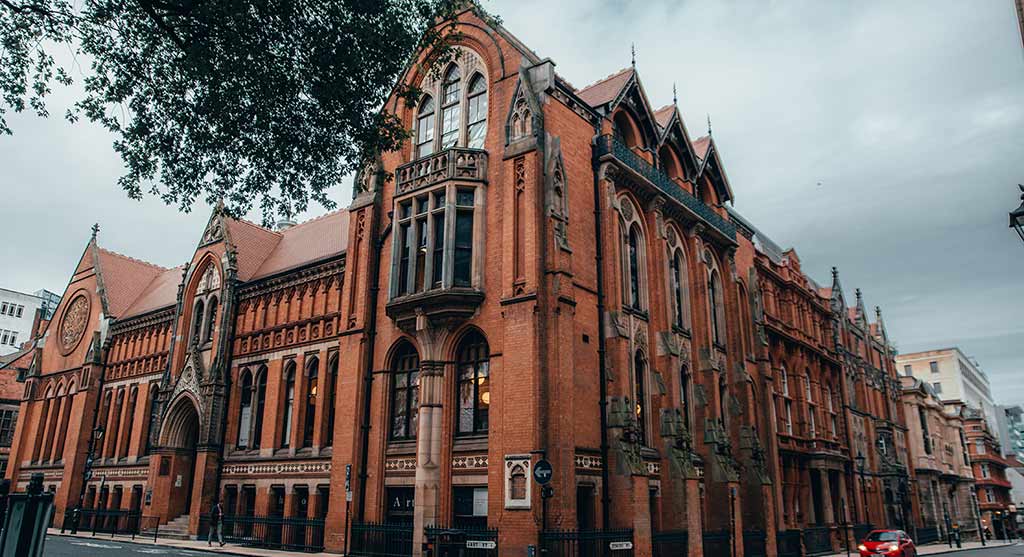
Our Facilities
We are constantly investing in our estate and are currently in the process of spending over £400 million on new learning facilities.
Birmingham School of Art (an impressive purpose built Grade 1 listed example of Venetian Gothic architecture) was the first major renovation project undertaken by the university (£5.5m refurbishment). The School provides an incredible resource for the production of art and its associated fields of study. The building has a range of facilities available including studios, workshops, specialist art and design library, bookable spaces and lecture/seminar rooms.
Our staff
Beth Derbyshire
Course Leader: MA Art and Project Management
Beth is a practising artist who has been working largely in the public realm for over 25 years. Her practice explores the diverse nature of human presence and expression within social and historical registers. Themes have been: silence in society, conflict and collective memory, nationality and identity. Recent works have investigated...
More about BethMona Casey
Course Leader: MA Fine Art
Mona Casey is MA Fine Art Course Director and International Lead. She is also module leader for the MA programme Models and Methods of Curatorial Practice. Mona was born in Ireland and currently lives in the UK, where she works as a curator, artist and researcher.
More about MonaDr Sian Vaughan
Associate Professor in Research Practice
Dr Sian Vaughan is Associate Professor in Research Practice and she leads RAAD – the centre for research in art, architecture, and design at Birmingham City University, providing strategic leadership, coordination, and care for a growing community of researchers.
More about SianDr Martyn Brown
Senior Lecturer in Organisation Studies and Coordinating Director of Post Graduate Framework Degrees
Martyn Brown has a varied background in addition to over 25 years lecturing in higher education. He is a qualified engineer and an experienced musician. His current main role is as Post Graduate Research lead in the Graduate School of Management. He is also a member of the Graduate School of Management Leadership subject group.
More about Martyn

